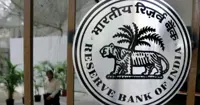E-commerce losses in India zoom 138% to Rs10,670 cr in FY16
28 Dec 2016
E-commerce firms in India piled up losses to the tune of Rs10,670 crore last year as they competed among themselves with deep discounts, advertisement promos and employee spend to attract consumers.
 Although revenues rose sharply, the rising cost of competition only helped to increase their losses. However, the increase in revenues in FY16 were not in line with rising spending as the growth rates remained stuck at the FY15 levels, suggesting no great buoyancy in business.
Although revenues rose sharply, the rising cost of competition only helped to increase their losses. However, the increase in revenues in FY16 were not in line with rising spending as the growth rates remained stuck at the FY15 levels, suggesting no great buoyancy in business.
Figures available with 14 companies, which included e-retailers, furniture sellers, travel portals and food ordering and delivery players, showed that their combined losses ballooned 138 per cent to Rs10,670 crore, according to Kotak Institutional Equities.
Among them, Amazon India, Flipkart, and Paytm contributed 70 per cent of the total losses during the year.
Amazon India, the biggest spender amongst all – with Rs2,163 spent in advertisements alone – reported losses of Rs3,572 crore in the 2015-16 financial year, as the American firm went all out to push sales in the Indian market, committing up to $5 billion to the Indian market.
Paytm's losses rose fourfold to R1,115 crore as it spent a fair amount on advertising its marketplace.
Flipkart's losses were comparatively modest, at Rs923 crore.
The problem with online sales in India is that while the number of online shoppers is estimated to have grown to 35 million and buyers, the growth in numbers were driven more by discounts and freebies than the convenience of having goods delivered at doorsteps.
With increasing cash burns, investors have been reluctant to fund e-commerce ventures. According to KIE, funding for e-commerce ventures from PE and VC firms is down 72 per cent year-on-year between April and November to just $1.2 billion.
With the consolidation in certain spaces following shutdowns and mergers, some firms have registered losses in FY17, says KIE.
PayU has acquired Citrus Pay and Ibibo is merging with Makemytrip. Some firms like Peppertap have scaled down delivery business,
Experts also attribute problems at e-commerce firms to a sluggish economy.
Meanwhile, the department of Industrial Policy and Promotion (DIPP) in late March issued guidelines allowing foreign direct investment (FDI) in e-commerce firms. However, marketplaces are disallowed from influencing prices on the platform.
Also, an e-commerce marketplace should not allow a single seller to contribute more than 25 per cent of the total sales on the platform.




.webp)


























